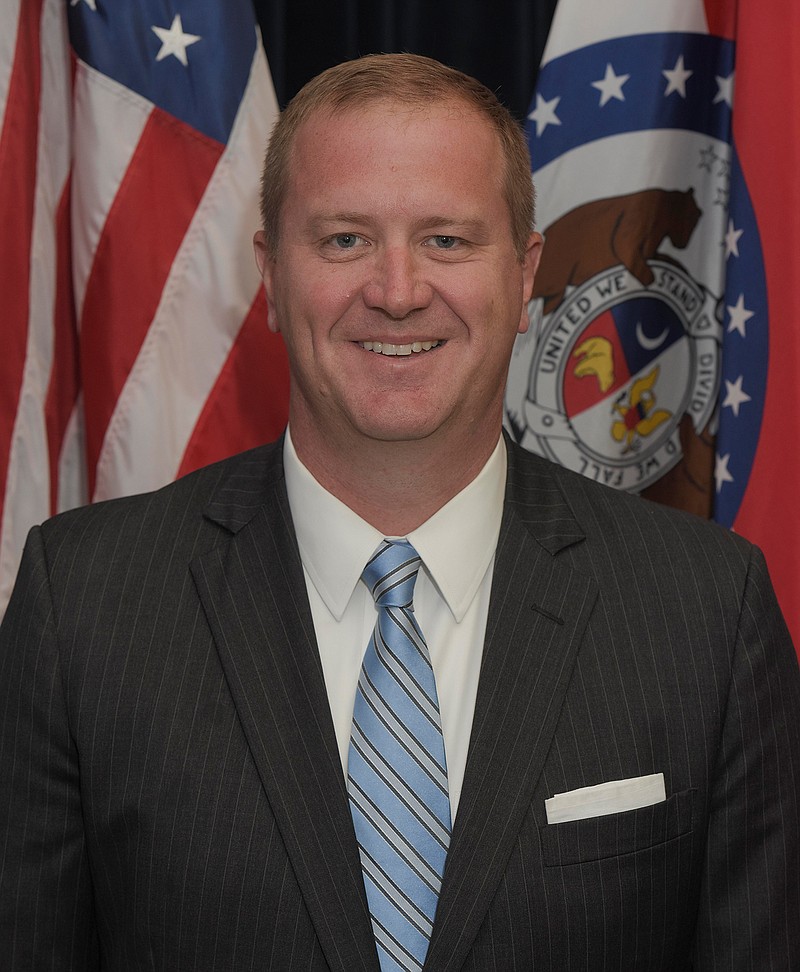Sen. Bernie Sanders, I-Vt., will deliver a speech on "American Leadership in a Time of Crisis" today at Westminster College in Fulton. The speech will be delivered at the same venue where the indomitable Winston Churchill gave his famous and chilling "Iron Curtain" speech 71 years ago.
In his speech, Churchill detailed the expansion of the Soviet Union and vigorously condemned the spread of communism in Europe. With a phrase that shook the world, Churchill declared "An iron curtain has descended across the continent." Behind that Iron Curtain, communist authorities denied citizens the freedoms espoused in the American Declaration of Independence.
Churchill's speech was delivered during a period of immense global change. World War II consumed the planet, claiming millions of lives and destroying whole economies. At the same time, the British Empire was falling toward decline and the dawn of American global leadership was just coming into sight.
That era was defined by a fight for hearts and minds about free enterprise versus state control, the individual versus the collective, open versus closed societies and the economic rights of humankind.
Yet, Churchill maintained his knack for truth-telling even in the midst of chaos. In his speech in Fulton, he articulated a vision for the world that would elevate the rights of the individual. In his view, democracies would come together to uphold and promote those freedoms we value above all else.
Achieving this future would require a swift rebuke of the growing threat of communism, but Churchill reminded us it would prevent us from war. He similarly warned against the dangers of socialism in a later speech, suggesting it is "the philosophy of failure, the creed of ignorance, and the gospel of envy."
Although Churchill's speeches and the drama of the Cold War may be a distant memory today, the parallels of the world Churchill saw and the world we live in now are considerable. The world is changing right in front of us. Economic institutions that have stood for hundreds of years crumbled in a matter of months during the Great Recession. Some businesses and jobs previously supporting hundreds of thousands of families no longer exist. There is an understandable anxiety about this unfolding era of change.
It is against that backdrop that Sanders comes to Fulton to share his view of the world. I hope he details a vision of robust American leadership and embraces the capitalist democracy that has enabled the pursuit of happiness since our nation's founding. That being said, I fear Sanders is coming to Fulton to deliver a message that instead creates distance from Churchill's vision. In doing so, he would be relying on an unfortunate resurgence of interest in socialism.
According to the Reason Foundation, 42 percent of millennials prefer socialism to capitalism though only 16 percent can define it. Undoubtedly, many who express a preference for socialism do so out of a misunderstanding about how the two systems have historically performed. We should be concerned about this emerging trend.
Since the leader of this new socialist movement is coming to the Show-Me State, it's worth unpacking the track record of his proclaimed ideology.
Socialism is full of empty promises and the effects of its implementation are devastating. Venezuela offers the most recent example of the abysmal failure of socialist policies. The country entered a deep recession in 2014 spurred by a drop in global oil prices, and cumbersome regulations on its currency are helping produce record-breaking inflation. The International Monetary Fund estimates consumer prices in Venezuela are set to increase more than 700 percent this year.
North Korea, another example of failure, highlights the potential for corruption in a system of government control. Sanders may offer a watered-down version of these policies, but the realization of his far-left ideas would mark the start of a slippery slope toward inevitable decline.
In contrast, free enterprise has reduced global poverty with staggering success. According to an Oxford University's study, 94 percent of the world's population lived in poverty at the dawn of the industrial revolution. By 2011, that number was down to only 17 percent. The most rapid reduction of poverty in the history of the world was because of free enterprise and capitalism.
Economic history teaches us unleashing the power of the free market alleviates human suffering and poverty. Sanders' ideological socialism, on the other hand, doesn't offer anything new. His philosophy is an old, tired one that has failed millions over the course of history.
The rapid pace of innovation is changing the world right in front of our eyes. Skype, social media and other advances in internet technology allow us to connect in ways no one could have imagined a decade ago. Products like Amazon Prime, Uber and Airbnb have brought the power of the marketplace to our fingertips. Selling socialism against the tide of these popular, market-driven innovations is an impossible task.
Sanders' staunch ideology puts him at odds with the policies we must embrace for Missouri to grow into the future. Nonetheless his visit brings an important debate back into the spotlight, and we should use this opportunity to reflect on importance of economic freedom. The facts are clear: embracing the economy of tomorrow is our best shot at expanding opportunity for all Missourians.

